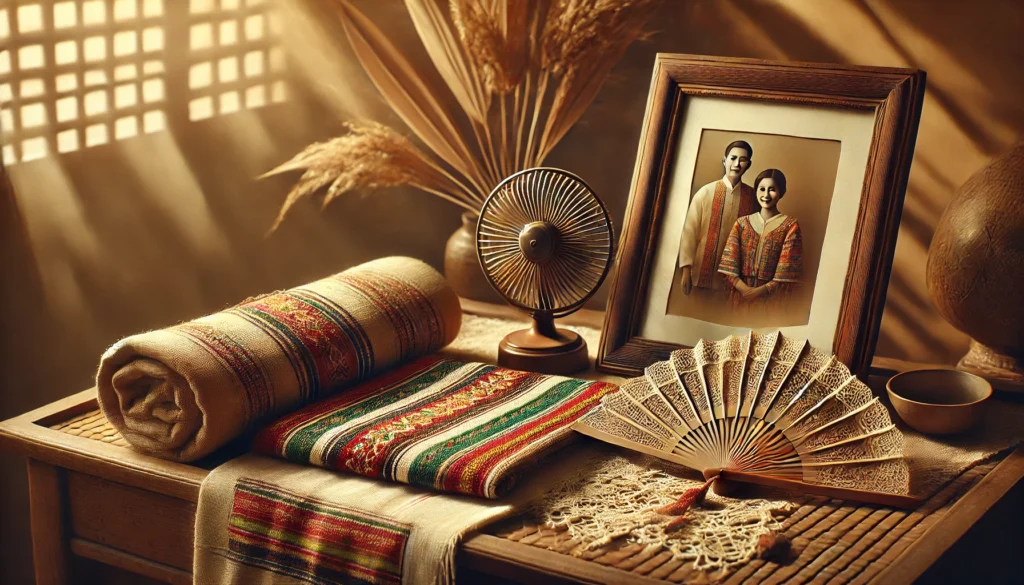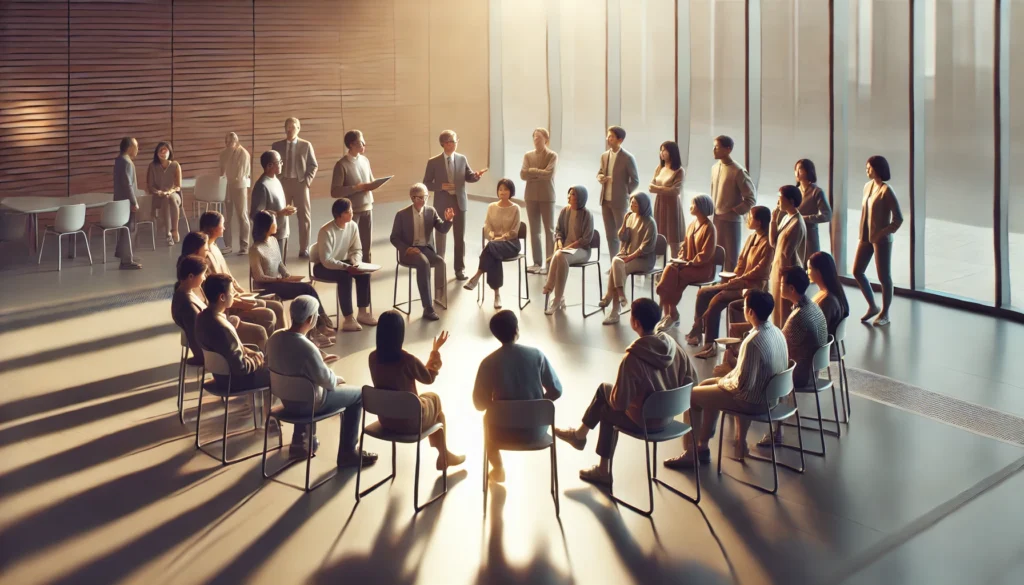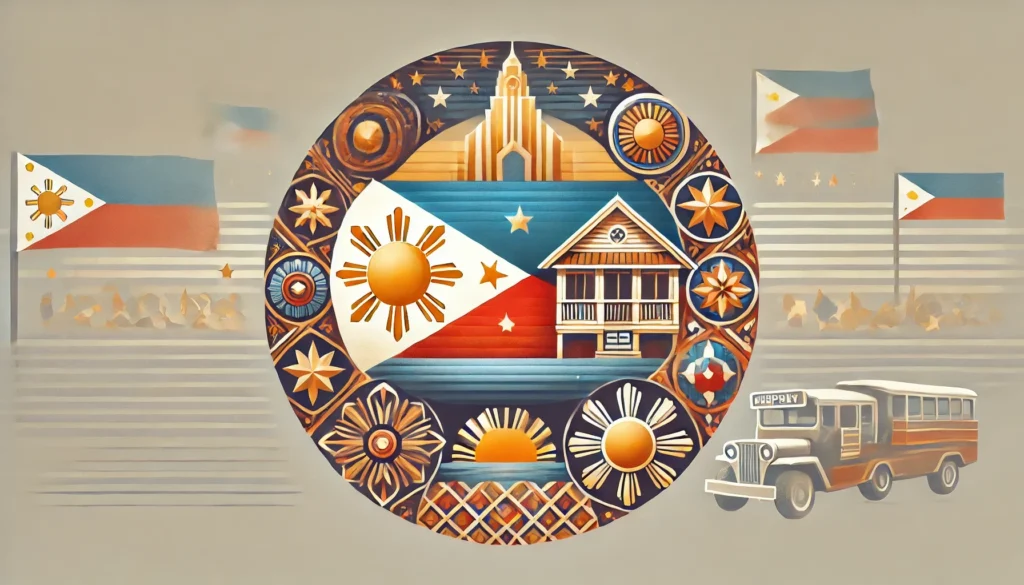Filipino values have long been the cornerstone of Philippine society, shaping the nation’s cultural identity and guiding the behavior of its people. These values, deeply rooted in history and tradition, have played a crucial role in molding the Filipino character and influencing social interactions. However, as the world rapidly changes and globalization continues to impact societies worldwide, a pertinent question arises: Are Filipino values still relevant today? This blog post delves into the essence of Filipino values, their historical significance, and their place in contemporary Philippine society.
The Core Filipino Values
Defining Filipino Values
Filipino values are a set of principles, beliefs, and attitudes that have been passed down through generations and are considered integral to Filipino culture. These values are often seen as the moral compass that guides Filipinos in their daily lives, relationships, and decision-making processes. While there are numerous values that Filipinos hold dear, several core values stand out as particularly significant and pervasive in Philippine society.
Key Filipino Values
- Bayanihan: This value embodies the spirit of communal unity and cooperation. It refers to the practice of helping one’s neighbors or community members, especially in times of need, without expecting anything in return. Bayanihan is often exemplified by the traditional practice of community members coming together to help a family move their entire house to a new location.
- Utang na Loob: Literally translated as “debt of gratitude,” this value emphasizes the importance of reciprocity and the acknowledgment of favors or help received. It creates a sense of obligation to repay kindness, fostering strong social bonds and mutual support networks within communities.
- Pakikisama: This value stresses the importance of smooth interpersonal relationships and getting along with others. It often involves compromising one’s personal preferences for the sake of group harmony and avoiding conflict.
- Hiya: Often translated as “shame” or “face,” hiya is a complex concept that encompasses a sense of propriety, social decency, and the desire to maintain one’s dignity and the respect of others. It acts as a social control mechanism, influencing behavior to conform to societal expectations.
- Respect for Elders: This value, deeply ingrained in Filipino culture, emphasizes showing deference and respect to older family members and authority figures. It is manifested in various ways, including using honorific terms and seeking advice or blessings from elders.
These core values, among others, have historically shaped Filipino society and continue to influence social interactions, decision-making processes, and cultural practices in the Philippines.
Historical Context of Filipino Values
Pre-colonial Roots
The origins of Filipino values can be traced back to the pre-colonial period when the Philippines was composed of numerous barangays and kingdoms. During this time, values such as bayanihan and respect for elders were already evident in the social structures and practices of indigenous communities. These values were essential for survival and social cohesion in a time when communities relied heavily on cooperation and mutual support.
Colonial Influences
The long period of Spanish colonization (1565-1898) significantly impacted Filipino values, particularly through the introduction of Christianity. This religious influence reinforced certain pre-existing values such as respect for elders and added new dimensions to Filipino morality. The concept of hiya, for instance, became intertwined with Catholic notions of sin and virtue.
The subsequent American colonial period (1898-1946) brought further changes, introducing ideas of democracy and individualism. However, many traditional Filipino values persisted, often blending with or adapting to these new influences.
Post-independence Era
After gaining independence in 1946, the Philippines underwent a period of nation-building where Filipino values were often emphasized as a unifying force. The concept of the “Filipino First” policy during the 1950s and 1960s, for example, sought to promote national identity and values in the face of continued foreign influences.
The Relevance of Filipino Values in Modern Times
Changing Social Dynamics
As the Philippines undergoes rapid urbanization and modernization, traditional social structures are evolving. Extended families living under one roof are becoming less common, potentially impacting values such as respect for elders and pakikisama. The table below illustrates the changing household composition in the Philippines:
| Year | Average Household Size | Percentage of Extended Families |
|---|---|---|
| 1970 | 5.9 | 32% |
| 1990 | 5.3 | 28% |
| 2010 | 4.6 | 24% |
| 2015 | 4.4 | 20% |
Source: Philippine Statistics Authority (PSA), 2015 Census of Population
This trend suggests a shift towards nuclear families, which may alter the way traditional values are practiced and transmitted across generations.
Globalization and Cultural Exchange
The increasing interconnectedness of the world through technology and media has exposed Filipinos to diverse cultures and value systems. This exposure has led to a blending of traditional Filipino values with global perspectives. For instance, while bayanihan remains an important concept, its manifestation has evolved. Modern bayanihan efforts often involve social media campaigns and online fundraising for disaster relief, demonstrating how traditional values can adapt to new contexts.
Economic Pressures and Value Shifts
The Philippine economy has undergone significant changes in recent decades, with a shift towards service-oriented industries and increased overseas employment. These economic factors have influenced the way Filipino values are prioritized and expressed. For example, the value of utang na loob has taken on new dimensions in the context of overseas Filipino workers (OFWs) supporting their families back home.
| Year | Number of OFWs (in millions) | Remittances (in billion USD) |
|---|---|---|
| 2000 | 7.4 | 6.9 |
| 2005 | 8.2 | 13.7 |
| 2010 | 9.5 | 20.6 |
| 2015 | 10.2 | 29.7 |
Source: Philippine Statistics Authority (PSA) and Bangko Sentral ng Pilipinas (BSP), 2017
The increasing number of OFWs and the growing reliance on remittances have created new dynamics in family relationships and obligations, challenging traditional notions of familial duties and reciprocity.
The Persistence of Filipino Values
Adaptability and Resilience
Despite the challenges posed by modernization and globalization, many Filipino values have shown remarkable resilience. This persistence can be attributed to their adaptability to changing circumstances. For instance, the value of pakikisama has found new expressions in professional settings, where teamwork and collaboration are highly valued skills.
Cultural Pride and Identity
In the face of global influences, there has been a growing movement to preserve and promote Filipino cultural heritage, including traditional values. This renewed interest in cultural identity is evident in various initiatives, from the inclusion of Filipino values in school curricula to the promotion of local traditions in tourism campaigns.
Values in Crisis Response
The relevance of Filipino values is particularly evident during times of crisis. Natural disasters, which frequently affect the Philippines, often trigger widespread displays of bayanihan spirit. The table below shows the number of people affected by major natural disasters and the corresponding volunteer efforts:
| Year | Disaster | People Affected | Volunteers Mobilized |
|---|---|---|---|
| 2009 | Typhoon Ondoy (Ketsana) | 4.9 million | 300,000+ |
| 2013 | Typhoon Yolanda (Haiyan) | 16 million | 500,000+ |
| 2017 | Marawi Siege | 400,000 | 150,000+ |
Source: National Disaster Risk Reduction and Management Council (NDRRMC) and various NGO reports, 2017
These figures demonstrate how traditional values like bayanihan continue to play a crucial role in Philippine society, especially during challenging times.
Challenges to Filipino Values in the Modern Era
Generational Gaps
As younger generations grow up in an increasingly globalized world, there is often a perceived gap between their values and those of older generations. This generation gap can lead to conflicts within families and communities, particularly regarding issues such as career choices, relationships, and lifestyle preferences.
Corruption and Ethical Challenges
One of the most significant challenges to Filipino values is the persistence of corruption in various sectors of society. The misuse of concepts like utang na loob in politics, where it can be exploited to perpetuate patronage systems, undermines the positive aspects of these traditional values.
| Year | Corruption Perception Index Rank (out of 176 countries) | Score (0-100, 100 being least corrupt) |
|---|---|---|
| 2012 | 105 | 34 |
| 2014 | 85 | 38 |
| 2016 | 101 | 35 |
Source: Transparency International Corruption Perceptions Index, 2012-2016
While there have been fluctuations in the Philippines’ ranking, the persistent issue of corruption poses a significant challenge to the integrity of Filipino values in public life.
Materialism and Consumerism
The rise of consumerism and materialism, fueled by economic growth and globalization, has led to shifts in priorities for some Filipinos. This change can sometimes conflict with traditional values that emphasize community, simplicity, and spiritual fulfillment over material success.
The Evolving Nature of Filipino Values
Reinterpretation and Adaptation
As society changes, Filipino values are being reinterpreted and adapted to fit contemporary contexts. For example, the concept of family loyalty is expanding to include chosen families and support networks beyond blood relations, particularly in urban settings and among younger generations.
Integration with Global Values
Filipino values are increasingly being integrated with global values such as human rights, gender equality, and environmental consciousness. This integration is creating a more complex and nuanced value system that retains core Filipino principles while embracing progressive ideals.
Digital Age and Filipino Values
The digital revolution has provided new platforms for the expression and promotion of Filipino values. Social media, in particular, has become a powerful tool for mobilizing bayanihan efforts and fostering a sense of national identity among Filipinos worldwide.
The Future of Filipino Values
Education and Value Transmission
The Philippine education system continues to play a crucial role in transmitting Filipino values to younger generations. The Department of Education’s K-12 curriculum includes modules on Filipino values and character education, ensuring that these principles remain a part of formal education.
Cultural Diplomacy and Soft Power
Filipino values are increasingly being recognized as a form of soft power in international relations. The warmth, hospitality, and resilience associated with Filipino culture, rooted in traditional values, contribute to the country’s positive image abroad and can be leveraged in diplomatic and economic relations.
Balancing Tradition and Progress
The challenge for future generations will be to strike a balance between preserving core Filipino values and adapting to the demands of a rapidly changing world. This balance will be crucial in maintaining cultural identity while embracing innovation and global citizenship.
Conclusion
Filipino values remain deeply relevant in contemporary Philippine society, albeit in evolving forms. While challenges such as modernization, globalization, and social change have tested the resilience of these values, they continue to play a significant role in shaping Filipino identity and social interactions. The adaptability of Filipino values, their integration with global perspectives, and their persistent importance in times of crisis demonstrate their enduring relevance.
As the Philippines continues to navigate the complexities of the 21st century, Filipino values will likely undergo further transformation. However, their core essence – emphasizing community, respect, gratitude, and harmonious relationships – will likely remain integral to Filipino culture. The ongoing dialogue between tradition and modernity, local and global perspectives, will shape the future expression and relevance of Filipino values.
Ultimately, the relevance of Filipino values in today’s world lies not in rigid adherence to tradition, but in their ability to evolve and provide meaningful guidance in an ever-changing societal landscape. As long as these values continue to foster social cohesion, mutual support, and a sense of national identity, they will remain an essential part of what it means to be Filipino in the modern world.
Disclaimer: This blog post is based on data and information available up to 2017. While every effort has been made to ensure accuracy, readers are encouraged to verify current statistics and trends. If you notice any inaccuracies, please report them so we can correct them promptly.




